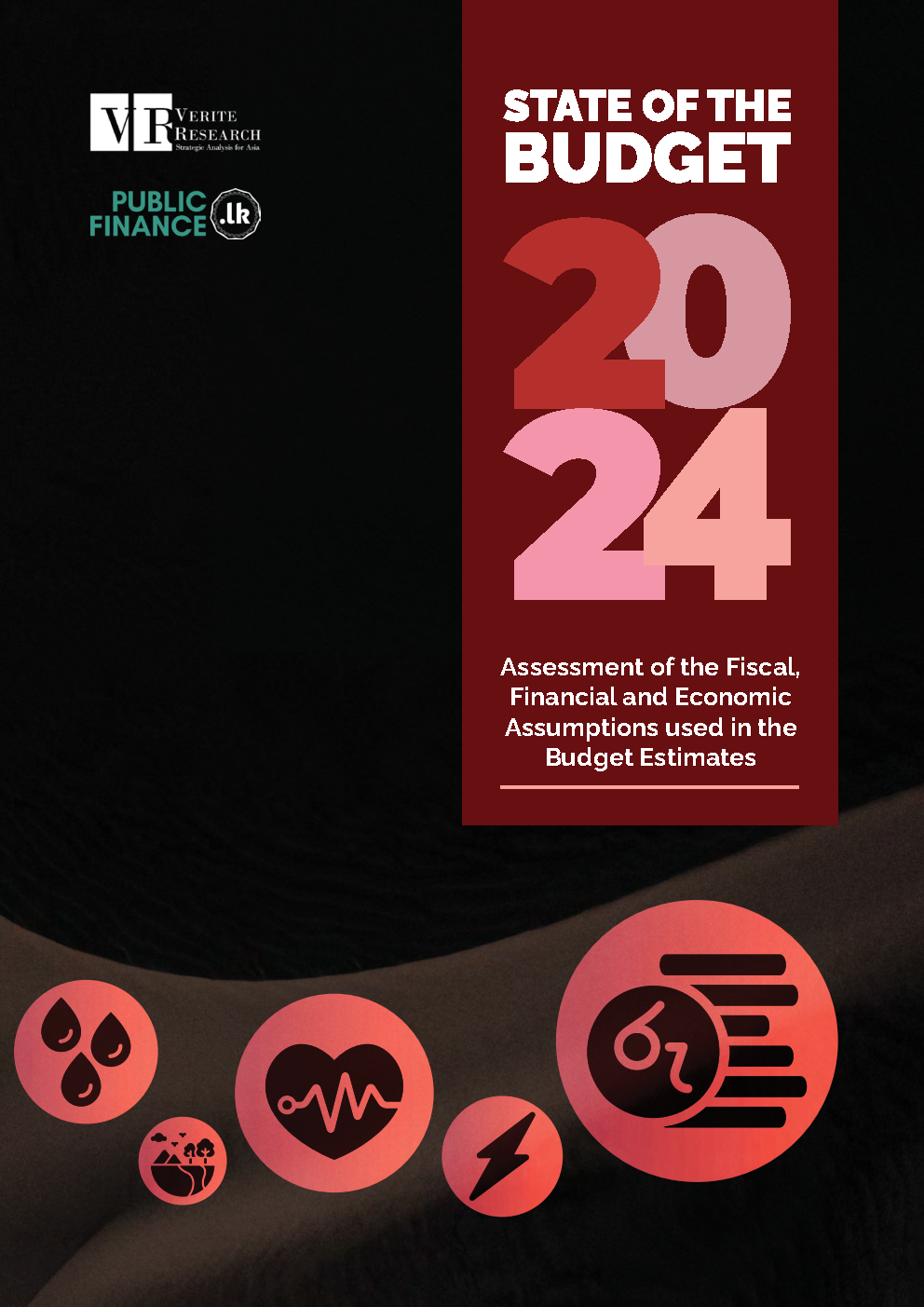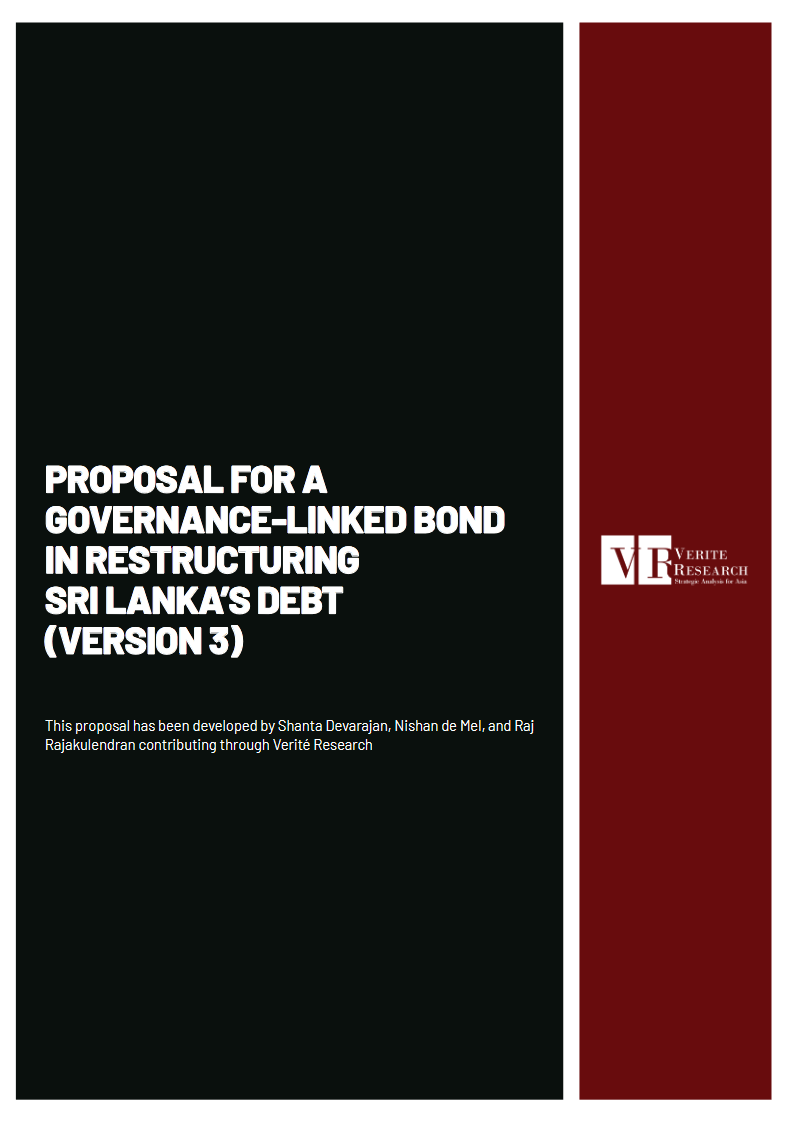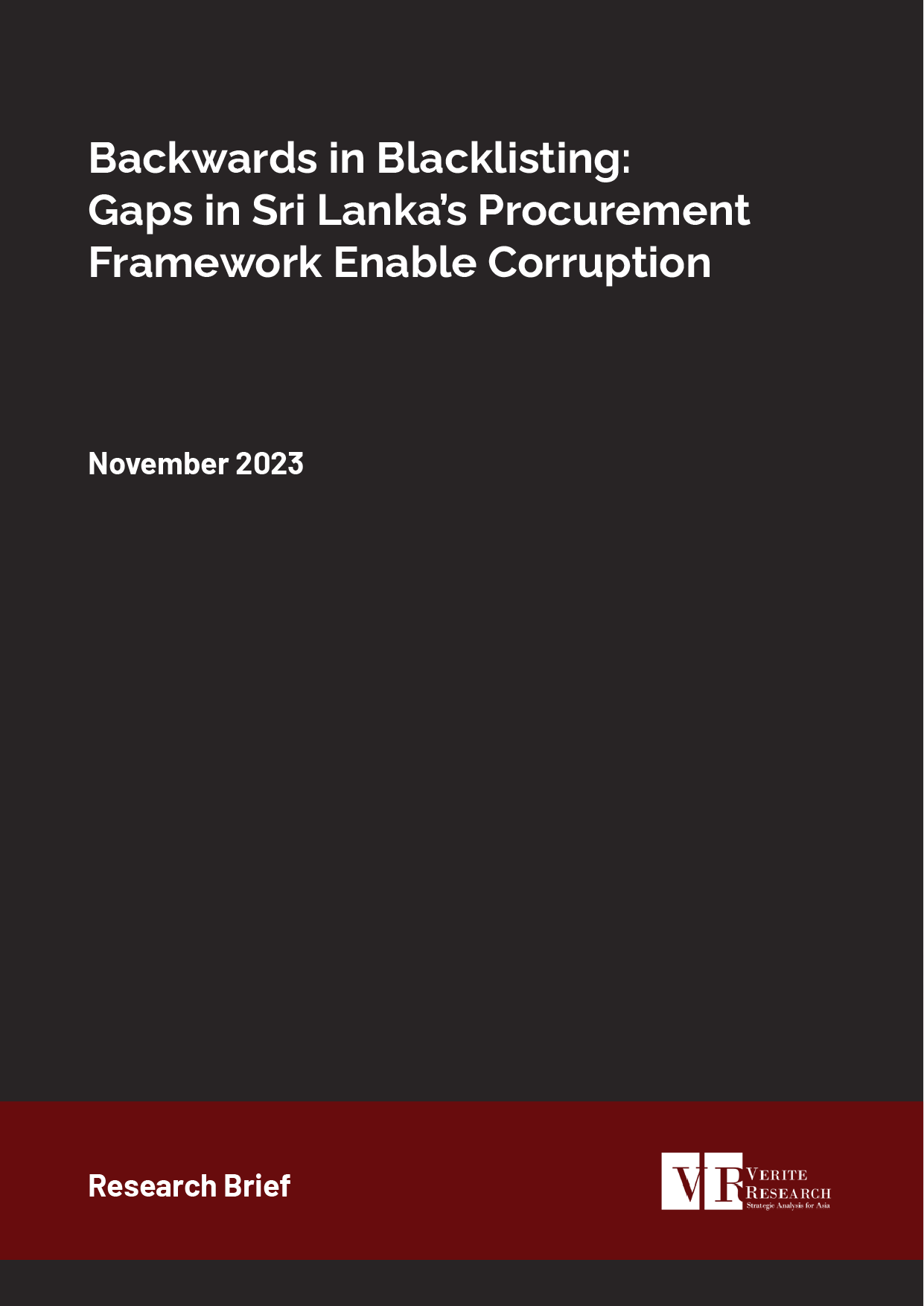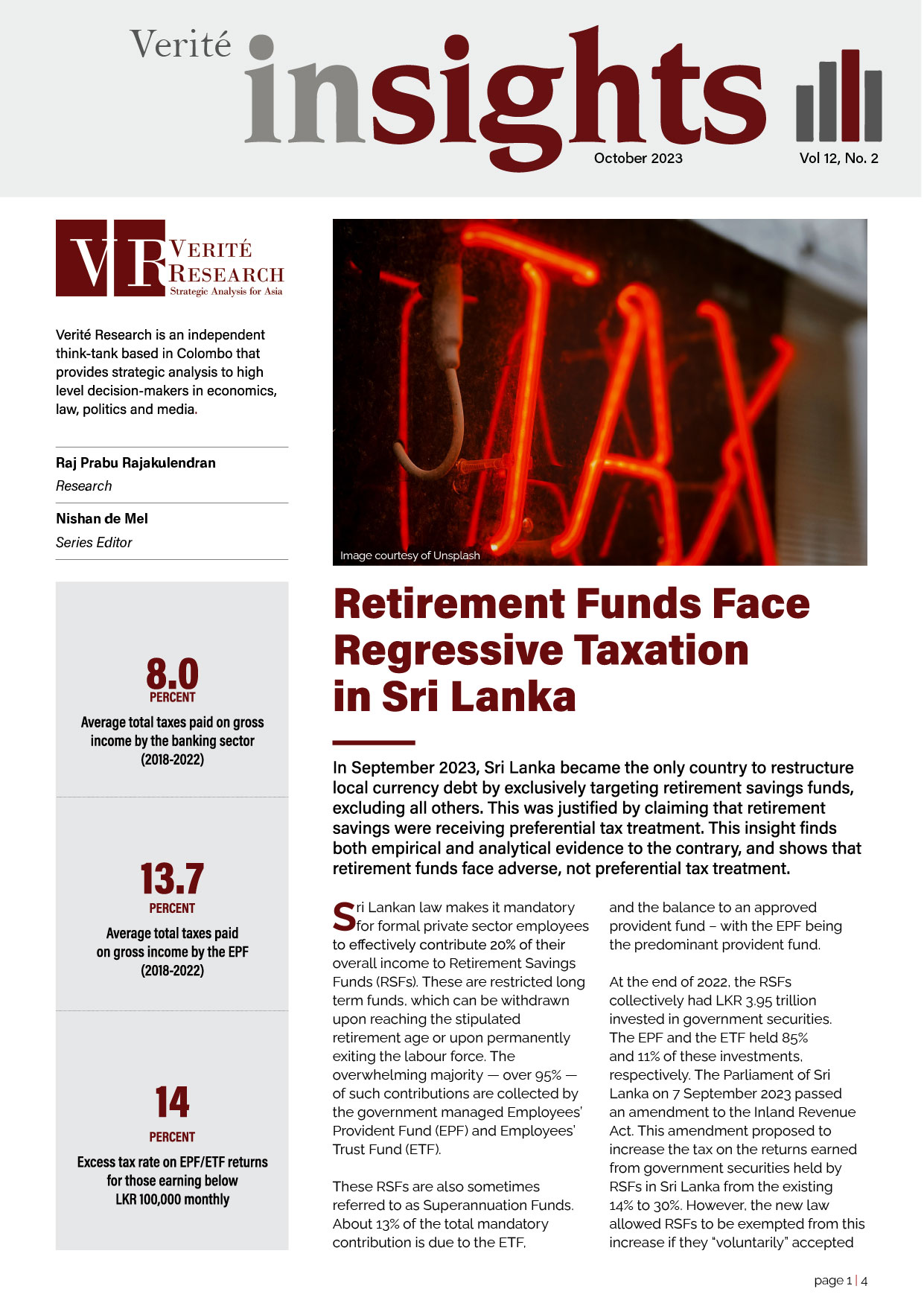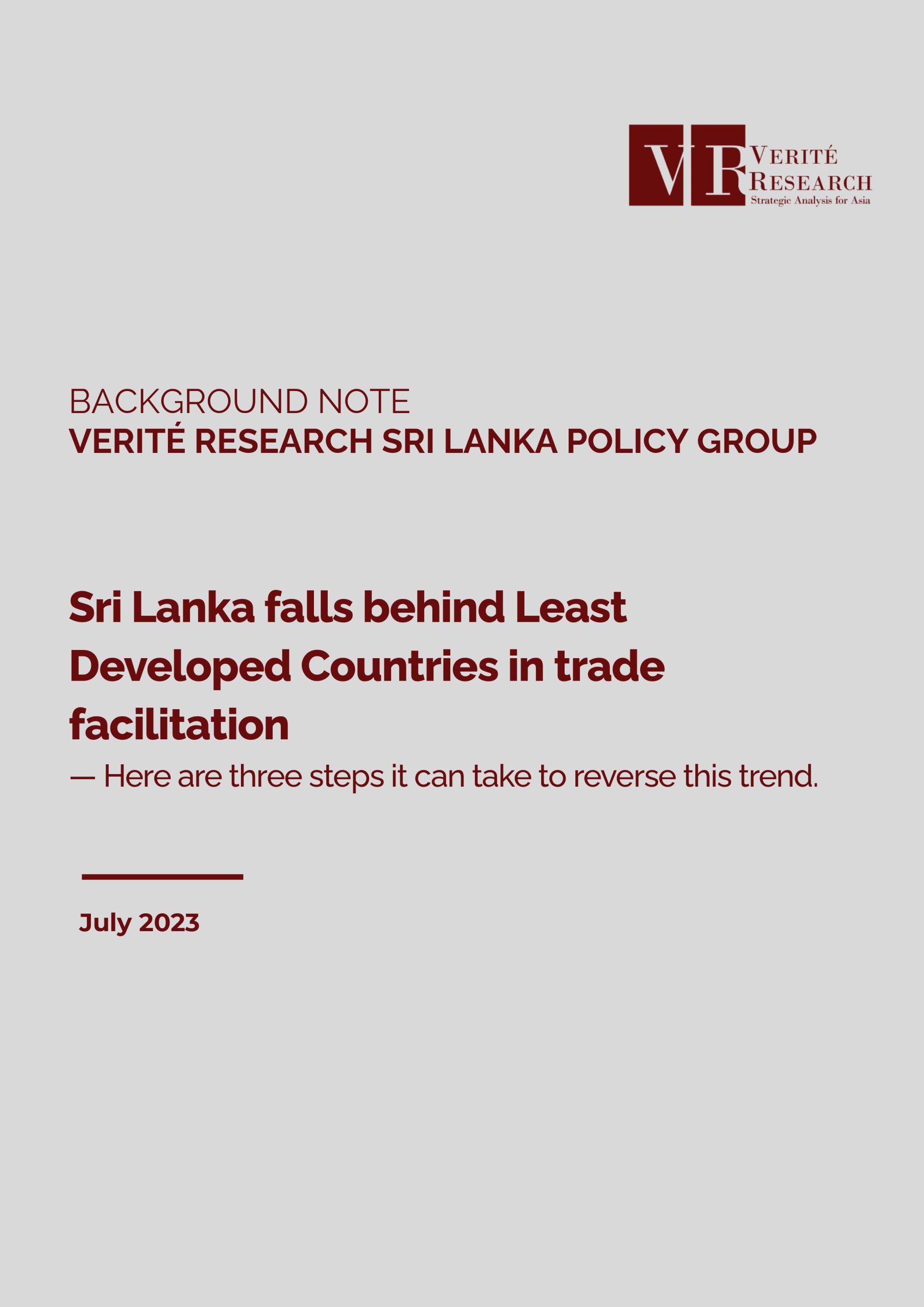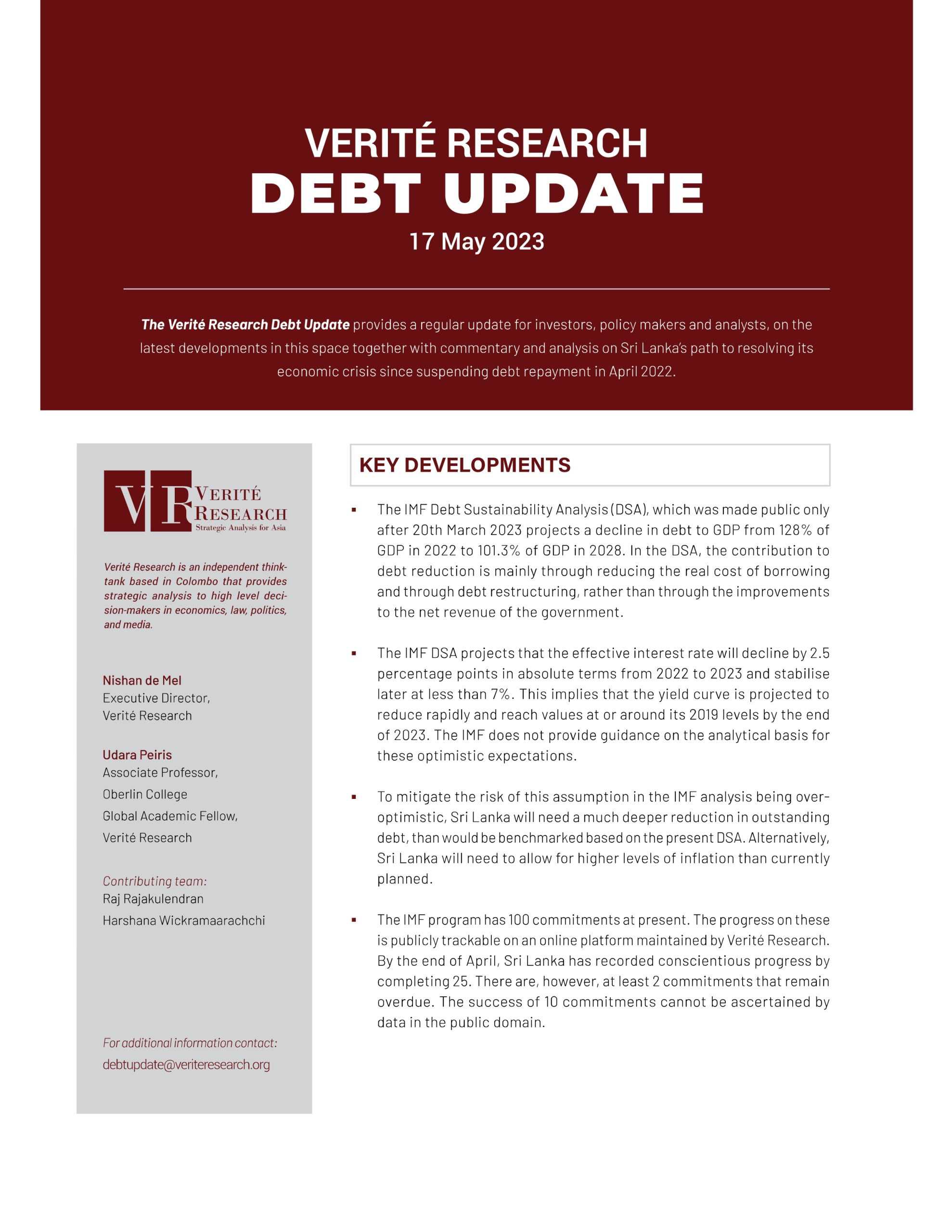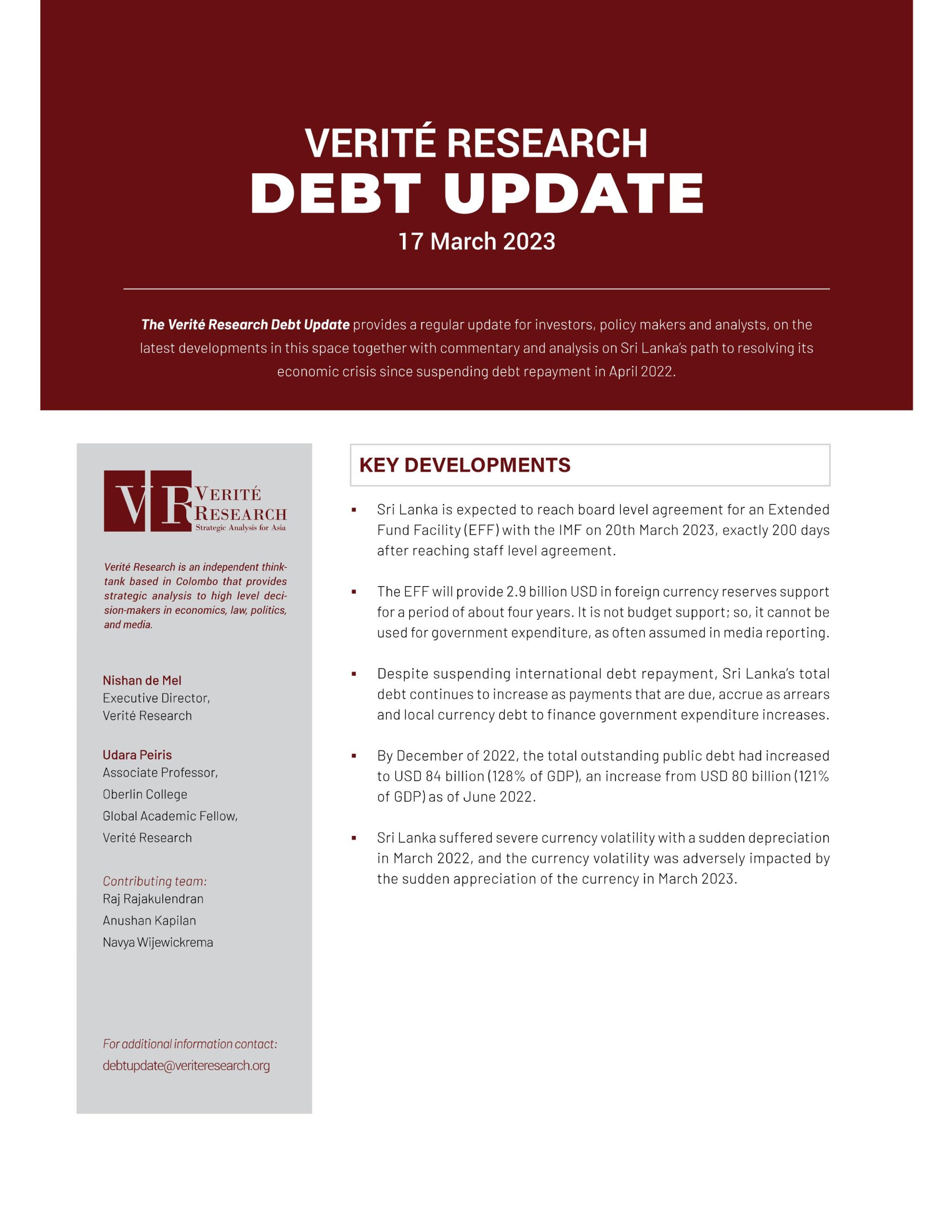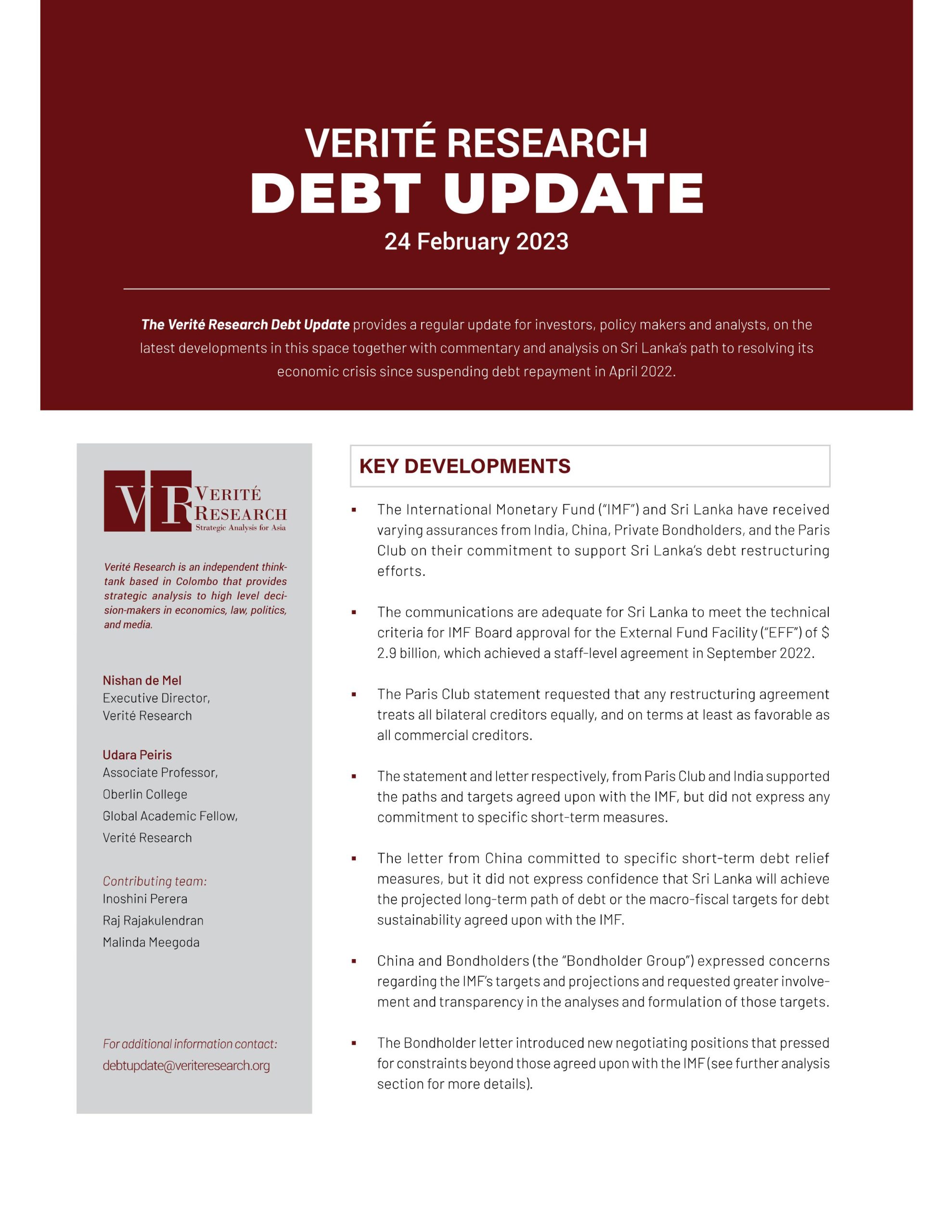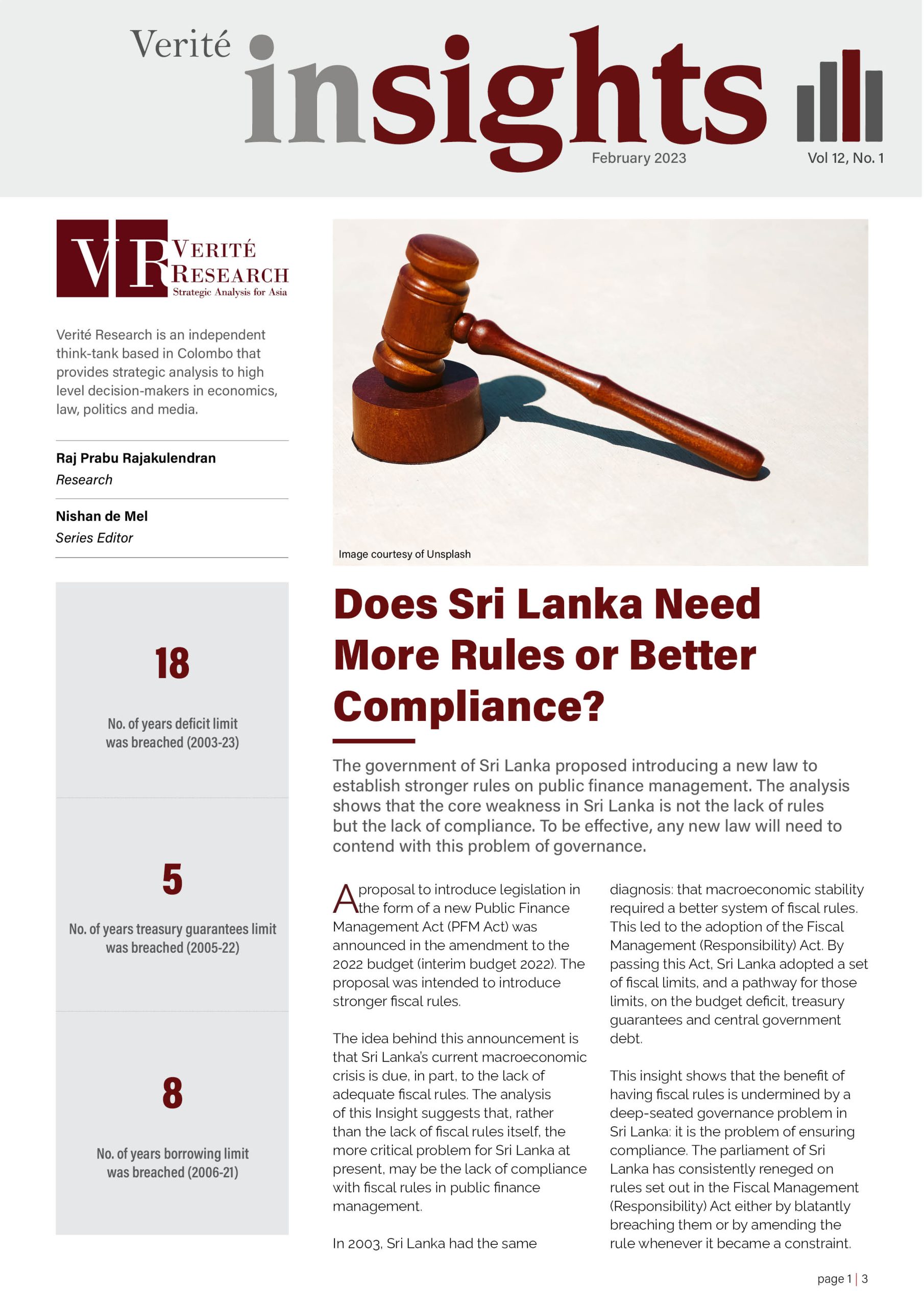The State of the Budget 2024 report compiled by Verité Research assesses the financial, economic and fiscal assumptions, the computation of estimates, and reporting standards applied in the 2024 Budget Speech. The state of the Budget is set out in four main sections. Section one introduces the report, sets out its objectives, and provides some background on Sri Lanka’s budget formulation process. Section two draws attention to the various deficiencies in the budget. Section three analyses the revenue estimates used in Sri Lanka’s 2024 Budget. Section four focuses on expenditure allocations and highlights concerns regarding the 2024 budget.
To address the governance risk to debt sustainability and provide incentives for the Government of Sri Lanka to implement governance reforms, this proposal sets out the structure of a novel sovereign debt instrument that can be used for countries with significant country risk in terms of future default, where the risk is likely to be correlated with the trajectory of governance. It is termed a “Governance-Linked Sovereign Bond” (GLSB). This short proposal is derived from a working paper by Verité Research that sets out the technical basis for the GLSB described here.
The research brief titled “Backwards in Blacklisting: Gaps in Sri Lanka’s Procurement Framework Enable Corruption” by Verité Research, published in November 2023, critically evaluates Sri Lanka’s public procurement system. It highlights two significant gaps: the legal gap, where procurement guidelines don’t allow for blacklisting contractors/suppliers involved in fraud and corruption, and the compliance gap, shown by the failure to maintain a blacklist for defaulting contractors. The brief compares Sri Lanka’s approach unfavourably with other South Asian countries, noting these countries’ more effective implementation of blacklisting and their maintenance of updated online databases of blacklisted firms. The study emphasizes the need for Sri Lanka to implement robust blacklisting provisions and maintain a comprehensive online list of blacklisted companies to deter corruption and ensure efficient use of public funds.
In September 2023, Sri Lanka became the only country to restructure local currency debt by exclusively targeting retirement savings funds, excluding all others. This was justified by claiming that retirement savings were receiving preferential tax treatment. This insight finds both empirical and analytical evidence to the contrary, and shows that retirement funds face adverse, not preferential tax treatment.
While there may be numerous factors contributing to Sri Lanka’s sluggish export performance, this background note highlights an important one that puts Sri Lankan exporters at a disadvantage: the failure of the government to facilitate trade by making import and export procedures efficient, less costly, more predictable, and transparent. The comparison is done by using the notifications on progress made by countries under the World Trade Organisation’s Trade Facilitation Agreement (TFA) as a yardstick. The analysis finds that Sri Lanka’s progress falls below not only its competitors and peers but also the least developed countries. Out of the 125 developing and least developed countries, Sri Lanka (ranked 104th) is among the countries that have made the least progress in implementing measures to facilitate trade. Based on the findings, this note provides three lessons Sri Lanka can learn from the experience of others and provides an indicative list of ten measures Sri Lanka can prioritise to implement.
In 2010, Sri Lanka established a unique framework, overseen by the Standing Cabinet Appointed Review Committee (SCARC), to handle unsolicited proposals (USPs) for public infrastructure funding. These USPs inherently bypass traditional competitive bidding in procurement. The report, ‘Foregoing Competition to Secure Funding for Public Infrastructure: One-Third of Funding Secured was Non-Concessional’, scrutinizes this framework. It reveals a significant discrepancy between the framework’s intended purpose of improving USP evaluation and the actual outcomes, with a substantial portion of the funding secured through SCARC being non-concessional in nature. The report identifies two vulnerabilities in the existing procurement framework that need urgent attention: the Cabinet’s unchecked power to modify procurement guidelines, and SCARC’s ability to approve projects non-compliant with even the minimum criteria outlined without repercussions.
This edition provides coverage and analysis of the IMF Debt Sustainability Analysis (DSA) and Sri Lanka’s progress on the 100 commitments outlined in the IMF program
This edition includes coverage and analysis on the usability of the IMF financing and the volatility of the exchange rate.
This inaugural edition of our latest publication series known as ‘Verité Research Debt Update. ’Sri Lanka is currently experiencing a financial crisis on an unprecedent scale. In May 2022, Sri Lanka defaulted on its debt servicing obligations for the first time in its history since independence. Against this backdrop, the Verité Research Debt Update provides a regular update for investors, policy makers and analysts, on the latest debt related financial news together with a brief analysis on the latest developments. This edition includes coverage and analysis on the financial assurance letters issued by China, India and a group of private bond holders.
The government of Sri Lanka proposed introducing a new law to establish stronger rules on public finance management. The analysis shows that the core weakness in Sri Lanka is not the lack of rules but the lack of compliance. To be effective, any new law will need to contend with this problem of governance
